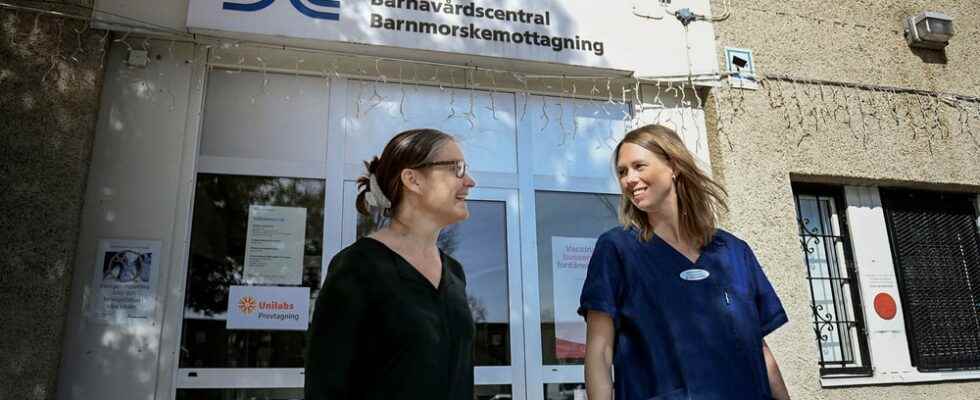It started in Rinkeby in northwest Stockholm. Nurses at BVC felt that they could not help the families with the needs they saw with the time they could devote to them. The language was often a barrier – nine out of ten residents in the district were born abroad or have two parents who are.
In Stockholm, the health differences are large between different socio-economic groups. Life expectancy differs by several years between different districts as well as the prevalence of diabetes and cardiovascular disease. And health differences also show up among children. In vulnerable areas, children more often have obesity and caries than children in more affluent areas.
With the help of project money from the Swedish Public Health Agency, BVC nurses and parent counselors in the preventive part of the social services developed a home visit program that was introduced almost 10 years ago.
– It gives us more time with the families and better opportunities to reach out and listen to what they already know. That we are seen at their home means that we get a better picture of how they are doing, the children are in their natural environment, says nanny Hanna Arvidsson.
The program is based on six of the BVC visits up to the age of 15 months being placed in the home. They are longer and often become more relaxed.
– You get a completely different relationship with these families, we get closer and get more trust from them, says Hanna Arvidsson.
The goal is to build a good relationship, to support parents to trust their own parenting skills and become more involved in society. Also to detect support needs early and be able to offer the help needed. Also on the visits is a parent counselor whose role is to provide social support for parenting and upbringing.
– For us, it is a chance to get to know the families early, before problems arise. With the hope that it will be a small step for them to contact us if they need it, says parent counselor Maria Tordai.
– It has made it easier for us to refer to you when we see that there is a need when the children have become a little bigger, says Hanna Arvidsson.
The program has now spread to several of Stockholm’s vulnerable districts. The crucial thing is the area’s need for care. If it is large, all first-time parents, or mothers who have previously had children abroad but gave birth to children in Sweden for the first time, are offered to participate.
Lene Lindberg, senior lecturer in psychology at Karolinska Institutet, has followed and evaluated the home visit program in Rinkeby. She has seen some effects on improving her health.
– Above all, vaccination coverage has increased and dental health has improved among the children included in the program. We have also seen that hospital admissions are fewer, language development is better and the predominance is less in the families who have received all six home visits in Rinkeby compared with the families who have received fewer.
Lene Lindberg also says that the program has had the greatest effects in the families that are furthest from Swedish society and have the most difficulty with the Swedish language.
– Those parents have developed their knowledge and ability to absorb information mostly as a result of home visits.
Lene Lindberg and her colleagues are now investigating the effects the program has had in other districts and municipalities in Stockholm County. Similar programs are also available in vulnerable areas in Skåne and Västra Götaland.
– Rinkeby is more heterogeneous in terms of language than many other areas and there the vaccination coverage has been particularly low. In other areas, perhaps other factors are most important.
